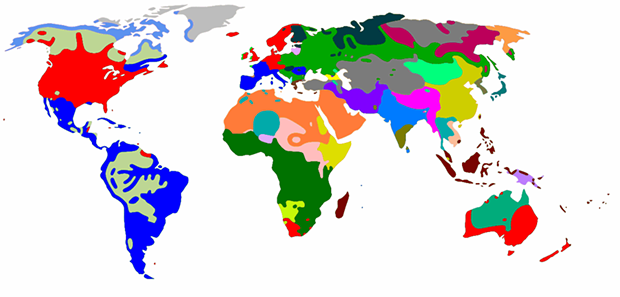[
{
"name": "Top Stories Video Pair",
"insertPoint": "7",
"component": "17087298",
"parentWrapperClass": "fdn-ads-inline-content-block",
"requiredCountToDisplay": "1"
}
]
"The linguist who does not display at least token interest in the Chomskyian endeavor is not considered 'a linguist linguist.'"
— John McWhorter
Forty years ago, while living in Boston, I started to worry that I'd inadvertently joined a cult. I was taking an introductory linguistics class and our teacher, a distinguished Harvard professor of language, intoned the name Chomsky so frequently and with so much reverence that I wondered if I might have joined a church of that name. Seriously: In 1978 the "Chomskyian Revolution" was in full swing, and "father of modern linguistics" Noam Chomsky's ideas about how we are born with an innate "Universal Grammar" (UG) had been accepted as gospel truth by most professional linguists.
I bought it, hook, line and sinker, writing approvingly of his theories some years ago in this column ("Noam Chomsky: Copernicus of Linguistics," July 30, 2009). Having followed the "language wars" for several years, I've since become increasingly skeptical of UG. Here's why:
Merge
Chomsky claims that a fundamental feature of all 6,000 of Earth's languages is what he calls "Merge," which governs how words are combined into more complicated phrases, including "recursion," by which objects refer to themselves within a sentence. ("I saw you with the guy who gave you that bracelet you always wear.")
Finding just one language in which this feature is absent would negate Chomsky's "universal" claim. Linguist Daniel Everett, in his analysis of the Amazonian Pirahã language, claims to have done just that. (See "Language: Innate or Invented," Sept. 26, 2016) Everett 's 2008 book Don't Sleep, There Are Snakes is a terrific read, both for his account of 20 years living with the Pirahã and for his succinct repudiation of Chomskyian theory. Unfortunately, instead of considering Everett's research at face value, Chomsky chose to retaliate with personal attacks, calling him "a charlatan."
Poverty of Stimulus
The whole rationale for UG arose in an attempt to explain the apparent mismatch between (a) the limited speech data that young children throughout the world hear from their parents and caregivers ("poverty of stimulus") and (b) their near-perfect verbal ability by the age of 6 or 7. Consider, for instance, these oddball rules in English with which ESL students struggle:
Irregular verbs: Said, wrote, swam (not sayed, writed, swimmed)
Transitive and intransitive verbs: "We found the room" but not "We arrived the room."
Declarative-to-question transformation: "The dog is there" becomes "Where is the dog?" —that is, "there" transforms to "where" and moves to the front of the sentence.
Copulas: Such as, "do" in the question, "Do you mind?" (Most languages skip this "do" form.)
Next time, I'll discuss one of the mainstays of Chomsky's theory of Universal Grammar: multiple auxiliaries. For now, ask yourself: Can such irregularities in English be learned by trial and error while a child is acquiring their native language, or would the kids have to be born with a genetic "language module" already in place?
Barry Evans ([email protected]) mourns the fact that he grew up in a monolingual environment, unlike most children the world over who are at least bilingual.
more from the author
-
Doubting Shakespeare, Part 1: Stratfordians vs. anti-Stratfordians
- Apr 25, 2024
-
A Brief History of Dildos
- Apr 11, 2024
-
Eclipse!
- Mar 28, 2024
- More »
Latest in Field Notes
Readers also liked…
-
Trouble on the Line: The Reality Part 2
- Nov 3, 2022

































